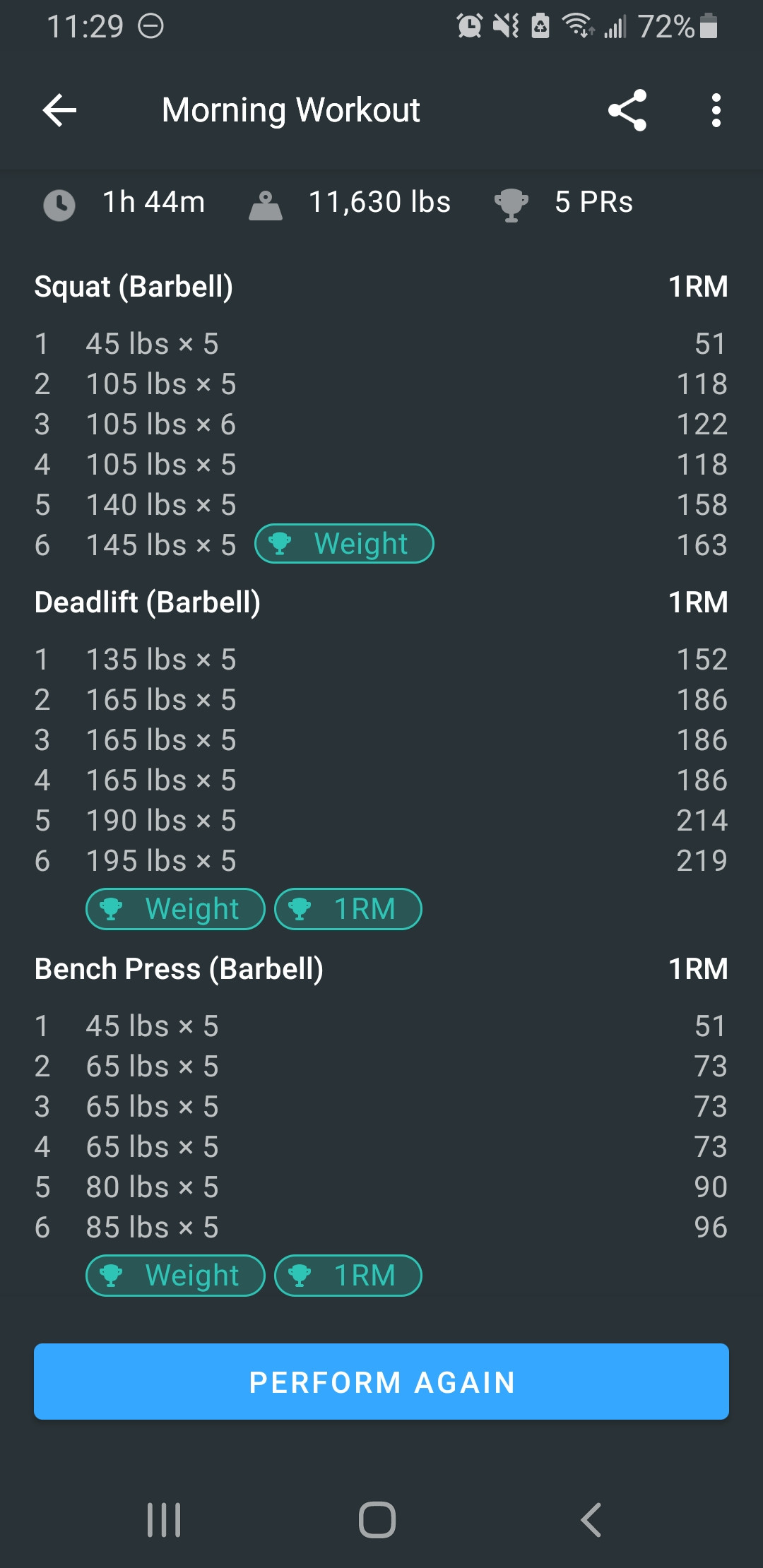I have been heavy weight lifting on and off for several years. I have most recently been focusing on squats, deadlifts, bench press, overhead press, and sometimes rows. Because I also do other workout classes, HIIT or cardio, I do these lifts once a week.
Below is my current plan:
Starting with squats and deadlifts, the first set (0) is always an "empty set" with the bar or 135lbs on deadlift. For sets 1-3, I add ~5lbs to the base from the week prior. Sets 4 & 5 are ramped, adding ~5lbs from week prior.
Here's what Sunday's workout looked like:
My goal is to build strength, and I have been impressed with setting PRs weekly (only ~4 weeks in). My gut is to do this ramping for 12 weeks, test a 1RM, and stabilize at some point. I'm really curious about how to determine when to stabilize, and what I mean is when to do the same amount of weight for X amount of time. I found this question on when to test/train a 1RM, but I'm more curious about when to stop/start ramping in one's training.
Edit for more clarity: I guess what I'm most concerned about is straining and muscle fatigue with ramping weekly for extended periods of time, thus assuming some period of stabilization. I assume this could lead to other problems over time. I know a short answer could be to "stop ramping once you've reached desired strength," but again, it doesn't acknowledge a stabilization period between increasing weight load.
